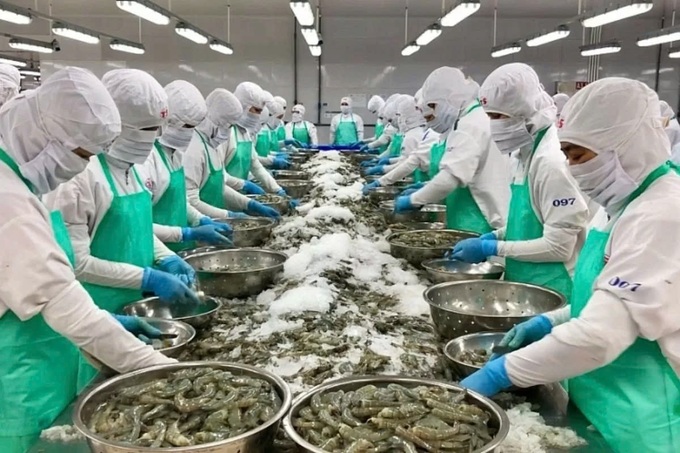
According to VASEP, its member companies are reliable producers and exporters of seafood, accounting for 80-84% of the country’s total seafood export value. They operate in accordance with national laws and regulations, as well as international standards for food safety, social responsibility, and environmental protection, making Vietnamese seafood products increasingly popular around the world.
Shrimp products alone contribute approximately 40-45% of the total value of the seafood sector each year, amounting to around US$3.5-4 billion. Currently, the products are exported to 100 different markets, with Europe, the United States, Japan, China, and the Republic of Korea emerging as the major consumers. Vietnam is now one of the top four shrimp-exporting countries globally, accounting for 10-13% of the world’s shrimp market value.
To export seafood products to various markets, Vietnam has made significant progress in improving labour standards and working conditions across all industries, including shrimp production. The government has implemented labour laws and regulations, established effective enforcement mechanisms, and promoted corporate social responsibility activities, said VASEP in its press release.
The organization also stated that the Vietnamese shrimp industry is a major economic driver, providing livelihoods for millions of people, especially in rural areas. The industry has undergone significant modernization and is committed to ensuring ethical and sustainable practices. To date, more than 200 shrimp processing factories have been approved by the European Commission, with regular inspections conducted at these facilities.
According to VASEP, the most reliable evidence that shrimp farming is both safe and sustainable can be found through the increasing number of certifications established by international standard organizations, including the Best Aquaculture Practices (BAP), Global GAP, and the Aquaculture Stewardship Council (ASC) certification.
To achieve these certifications, farms must adhere to criteria such as social responsibility (including the prohibition of child labour, ensuring worker health and safety, freedom of association, and community relations), legal compliance, and environmental conservation.
With regard to labour issues, VASEP noted that labour practices at Vietnamese shrimp firms are governed by the 2012 Labour Code and Government Decree 45/2013/ND-CP dated May 10, 2013.
With its responsibility and experience as a representative organization for Vietnamese seafood producers and exporters, VASEP asserted that the Vietnamese shrimp industry is well-positioned to develop sustainably, complying with all national and international laws and regulations related to labour conditions, social responsibility, and food safety.
Judging from the facts, VASEP once again confirmed that the findings and information in the Sustainability Incubator report about the Vietnamese shrimp industry are inaccurate, unfounded, and lacking objectivity.
The 36-page report provides an analysis based on field research in the Vietnamese shrimp industry, conducted from July 2023 to May 2024 by three independent research teams in Vietnam.
